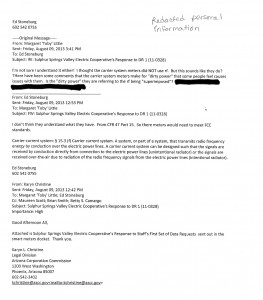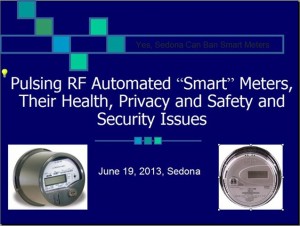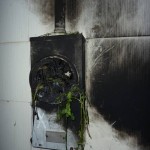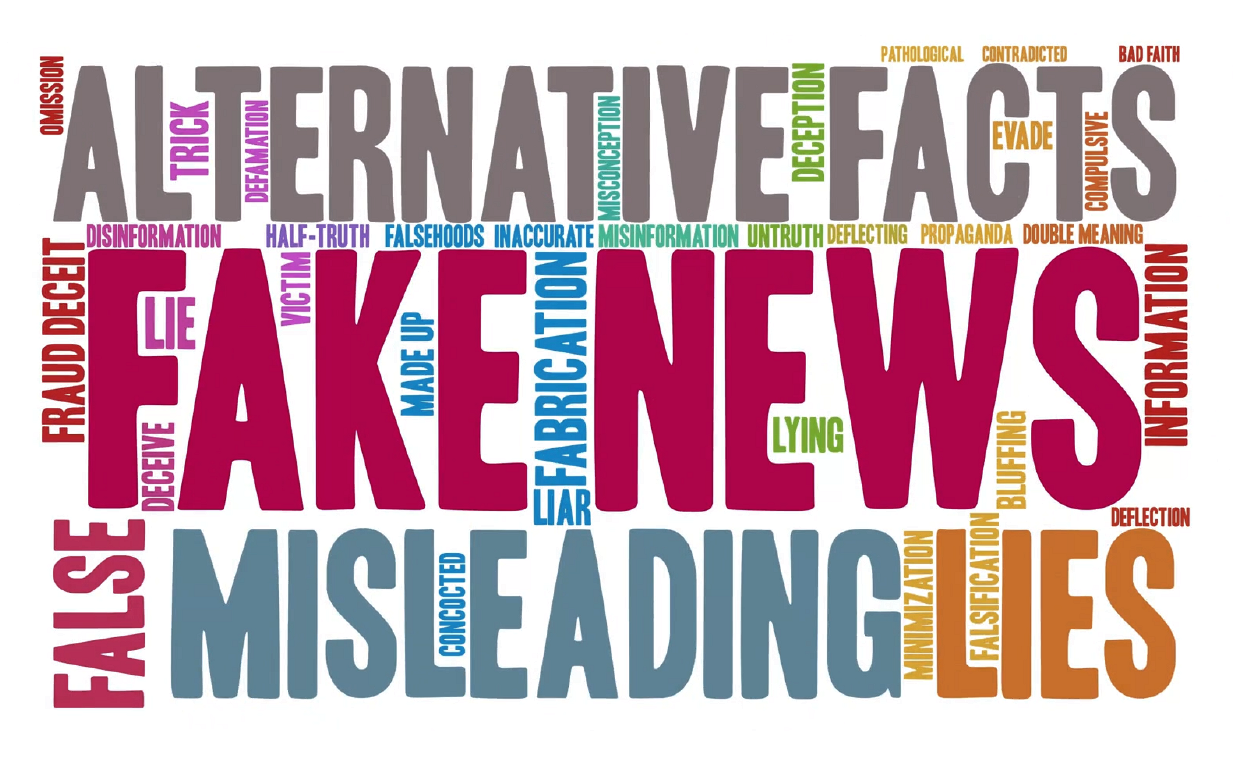Information & Perspective by Warren Woodward
Sedona, Arizona ~ February 20, 2016

Redacted Arizona Corporation Commission release
I made a Public Records Request of the Arizona Corporation Commission (ACC) back in December of 2014. The following January, when the ACC sent me the documents I asked for, I caught them making all kinds of bogus redactions to the documents, including even inventing a new redaction classification called “state of mind” whereby entire pages were blacked out.
I also caught the ACC not giving me all the documents they should have by law. They actually hid documents from me. I found this out because at the same time I made a Public Records Request of the ACC, I also made one of the Arizona Department of Health Services (ADHS). I got emails from the ADHS that I should have also gotten from the ACC but never did. The Directors of the two agencies had exchanged emails, so what I got from the ADHS I should have also gotten from the ACC, but I didn’t.
I gave the ACC another chance to get it right. Typically incorrigible, they didn’t.
I then sought the help of Arizona Citizen Ombudsman, an agency set up by the Arizona State Legislature that’s supposed to help citizens in situations just like this. The Ombudsman only wasted my time, three and a half months worth.
I then realized that, according to law, what the ACC had done was actually felonious, criminal. It took me two months of pestering but I finally interested the Arizona Attorney General, the lazy Mark Brnovich, enough to ask for my proof. Just two days after I presented my proof to the A.G., his office got back to me. They were uninterested in upholding the law.

The ACC is tasked with the responsibility to protect AZ ratepayers by weighing the costs and benefits of all state utility requests.
So yesterday I filed a “Complaint for Statutory Special Action” in Yavapai County Superior Court. I am asking that all the improperly redacted documents to be unredacted, and to receive all the documents I am entitled to by law, not just the ones the ACC wants to give me. Because the ACC has shown it cannot be trusted to do either, I asked for a criminal investigation of the ACC as well as an independent person or agency to review the documents for possible, legitimate redaction.
My Complaint for Statutory Special Action (less the 116 pages of Exhibits) is below:
Plaintiff alleges for his Complaint for Statutory Special Action as follows:
1. This is an action to enforce A.R.S. § § 39-121 to 39-121.03 (the “Arizona Public Records Law”).
2. Plaintiff brings this action and the jurisdiction of this Court is invoked pursuant to A.R.S. § 39-121.02 and Rules 1 and 4 of the Arizona Rules of Procedure for Special Actions.
3. Plaintiff is a resident of Arizona, a ratepayer therein and an Intervenor in three Dockets at the Arizona Corporation Commission.
4. Defendant Arizona Corporation Commission (“ACC”) is a “public body” as defined in A.R.S. § 39-121.0l(A)(2).
5. This action arises out of Defendant’s failure to produce Public Records both by secreting them altogether, and by improperly and illegitimately redacting the Public Records that were not secreted.
6. The Public Records Plaintiff seeks are within the meaning of the Arizona Public Records Law. See, e. g., A.R.S. § 39-121.0l(B): “public records” include “all records . . . reasonably necessary or appropriate to maintain an accurate knowledge of their official activities and any . . . activities which are supported by funds from the state or any political subdivision of the state.”
 7. Thus, by this Special Action, Plaintiff seeks access to Public Records that are rightfully his to inspect under Arizona Public Records Law.
7. Thus, by this Special Action, Plaintiff seeks access to Public Records that are rightfully his to inspect under Arizona Public Records Law.
8. Plaintiff has endeavored to invoke his statutory rights to inspect these records since December 15, 2014, but to no avail.
9. Plaintiff has endeavored to avoid the expense and hassle of litigating to secure his rights, but to no avail.
10. On December 15, 2014, Plaintiff made a Public Records Request of the ACC. (Exhibit A)
11. On January 15, 2015, Defendant responded to Plaintiff’s Public Records Request (“Request”) by sending Plaintiff a CD of documents along with a cover letter. On January 22, 2015, another CD of documents along with another cover letter was sent to Plaintiff by Defendant. These two CDs were meant to complete Defendant’s response to Plaintiff’s Request. Copies of both cover letters and both CDs are enclosed as Exhibit B.
12. Upon review of the documents on the CDs, Plaintiff noticed many things contrary to Arizona Public Records Law and, on March 23, 2015, demanded the Defendant redo its response to the Request.
13. In the redo demand, Plaintiff cited an example of faulty redaction for “personal information.” Plaintiff caught Defendant redacting a joke about scamming taxpayers with a Hawaii trip by noticing that in one email thread the joke was redacted as “personal information” but in another email thread it was not. That called into question the validity of all other “personal information” redactions – were they done to legitimately protect truly personal information, or were they done to hide things Defendant did not want Plaintiff to see?
14. In the redo demand, Plaintiff also noted that Defendant had improperly redacted Public Records by inventing a new self-serving and devious redaction classification that Defendant called “state of mind.”
15. In addition, because Plaintiff made a similar Public Records Request of the Arizona Department of Health Services (“ADHS”), Plaintiff was able to catch Defendant not providing all the Public Records that Defendant was required to under Arizona Public Records Law. An email thread between ACC Director Jodi Jerich (“Jerich”) and ADHS Director Will Humble (“Humble”) appeared in the ADHS’s response to Plaintiff’s Public Records Request but not in Defendant’s response to Plaintiff’s Request.

Palo Verde nuclear plant
16. What is remarkable, as well as felonious, Defendant never did correct either the “state of mind” redactions or the secreted Public Records despite being given two more chances to do so.
17. Plaintiff’s March 23, 2015 redo demand is included as Exhibit C. The redo demand was sent as an email. It has been printed out as well as its two attachments, an example of an entire page redacted for “state of mind” and both the redacted and unredacted versions of the “personal information” Hawaii joke. The secreted Jerich/Humble email exchange was referenced in Plaintiff’s redo demand thus:
The exchange is less than favorable to both Jerich and Humble. It showed that Jerich prejudiced the “smart” meter study before it was even voted for by the commissioners, and it showed that Humble “knew” the meters were safe even before the study commenced because his intuition told him so. (See pages 4 & 15, here: http://images.edocket.azcc.gov/docketpdf/0000162532.pdf )
I can only assume that the incriminating and embarrassing nature of this exchange is the reason it was not included in my request.
The pages 4 (which discusses Defendant’s likely motive) and 15 (plus16, which comprise the actual secreted exchange) referenced above have been printed out and are also included in Exhibit C.
18. Plaintiff just got lucky catching Defendant secreting Public Records. Had Plaintiff not made a similar request of the ADHS, Plaintiff would have never known that Public Records had been secreted by Defendant.
19. Since compliance with Public Records Law seems to rely on trust, Plaintiff points out, then, that Defendant simply cannot be trusted to comply with the Law, and Plaintiff wonders what other Public Records have been secreted. Short of a complete and independent criminal investigation, the likes of which Plaintiff cannot carry out, it cannot be known what other Public Records have been secreted by Defendant.
20. Seventeen pages of Defendant’s wholesale use of the bogus “state of mind” redaction can be found in Exhibit D.
21. On March 30, 2015, ACC Chief Counsel Janice Alward acknowledged my redo demand, and said she will “personally review the redacted documents.” (Exhibit E)
22. On April 28, 2015, Plaintiff reiterated his redo demand to Janice Alward (Exhibit F). In the documents received as a result of Plaintiff’s Request, there was a heavily redacted email thread that Plaintiff then docketed at the ACC. The thread involved the ACC Administrative Law Judge (“ALJ”) assigned to the “smart” meter dockets. Plaintiff suspected the redacted email thread may have been inappropriate, unethical ex parte communication. As a result of Plaintiff calling attention to this redacted thread, Lyn Farmer, the chief ACC ALJ, unredacted the thread and placed it in the docket. Plaintiff was concerned that Lyn Farmer’s docket submission was perhaps Defendant’s response to his redo demand, and so Plaintiff reiterated his redo demand. Exhibit G shows both the redacted and unredacted versions of the email thread in question.
23. Note that there was really no point in redacting this email thread in the first place. Its contents are innocuous. As will be seen later in greater detail (in Exhibit I), Defendant often redacts arbitrarily, simply because it can.
24. Note also that one of the emails in the thread, the email sent June 3, 2014 at 4:38 PM from “bizhub_751” to Maureen Scott, was one in which in Plaintiff’s version (seen reprinted in Exhibit G as well as in Exhibit B, Part 1, pp. 5 & 6) there was no message whatever, just a blank piece of paper. Plaintiff would not have even known something was missing had not Lyn Farmer supplied the complete version of the email. This is but one example of many instances of Defendant’s misconduct in responding to Plaintiff’s Request. As will be seen later in greater detail and via many more examples (in Exhibit I), Defendant simply cannot be trusted to respond properly and lawfully to a Public Records Request.
25. In response to Plaintiff’s redo demand, on May 15, 2015, Plaintiff received Defendant’s cover letter that accompanied a CD of supposedly redone Public Records. Both are included as Exhibit H.
26. On June 5, 2015, Plaintiff submitted a 10 page “chapter & verse” thorough critique of Defendant’s miserably inadequate Public Records Request redo response to the Arizona Citizen Ombudsman (“Ombudsman”) in hopes that the Ombudsman would be able to make Defendant adhere to Arizona Public Records Law. Plaintiff’s critique, ACC Violates Public Records Law, as well as Plaintiiff’s letter to the Ombudsman, are included as Exhibit I.
27. Plaintiff encourages the Court to read Exhibit I in full since it details the many inadequacies of Defendant’s redo response.
28. Incredibly, in Defendant’s supposedly redone response to Plaintiff’s Request, Defendant did not unredact any of the bogus “state of mind” redactions, nor did Defendant provide the secreted email exchange between Jerich and Humble. What Defendant did do was engage in padding its redo response with many Public Records that were never redacted in the first place. In addition, documents that did get unredacted in Defendant’s redo response will leave any reasonable person wondering why those documents were ever redacted in the first place, as well as wondering what documents remain improperly redacted.
29. Upon reading ACC Violates Public Records Law, it will be clear that Defendant acts arbitrarily, contrary to law and cannot be trusted to properly redact anything.
30. On August 13, 2015, the Ombudsman wrote Plaintiff that:
We contacted the ACC who stated the only material withheld was based on legislative privilege of which were records related to the ACC’s legislative function of rate increases. We have concluded through our review that this was a justified reason for withholding those related documents based on legislative privilege and have therefore closed this complaint.
(Ombudsman letter to Plaintiff, Exhibit J)
31. So, Defendant said it’s OK to withhold documents – not redact, withhold – as long as it’s “based on legislative privilege,” and the Ombudsman believed Defendant. Both, then, need a tutorial in Arizona Public Records Law.
32. Besides, Plaintiff’s Request had nothing to do with a legislative issue that may have involved “legislative privilege.” Plaintiff was seeking all documents related to a study of “smart” electric utility meters that the ACC had requested the ADHS perform. As Plaintiff plainly stated in his Request (Exhibit A):
 I am interested in any and all emails or other written communication between the ACC commissioners and all ACC staff (including Jodi Jerich and her dept.) and the Arizona Department of Health Services (ADHS) and also the Arizona Radiation Regulatory Agency (ARRA) that have to do with the ADHS “smart” meter study. Such a search would also include the time well before August 5, 2013 when the Commission voted to ask for the study since it was clear that contact with ADHS (and possibly ARRA) had been made before that date.
I am interested in any and all emails or other written communication between the ACC commissioners and all ACC staff (including Jodi Jerich and her dept.) and the Arizona Department of Health Services (ADHS) and also the Arizona Radiation Regulatory Agency (ARRA) that have to do with the ADHS “smart” meter study. Such a search would also include the time well before August 5, 2013 when the Commission voted to ask for the study since it was clear that contact with ADHS (and possibly ARRA) had been made before that date.
33. After the Ombudsman’s acquiescence to Defendant, Plaintiff spent the next two months unsuccessfully looking for a pro bono lawyer to file a Statutory Special Action under A.R.S. § 39-121.02 to compel Defendant to comply with Arizona Public Records Law.
34. Then Plaintiff became aware of A.R.S § 13-2407, Tampering with a public record, and A.R.S. § 38-421, Stealing, destroying, altering or secreting public record, and Plaintiff realized what Defendant had done was literally criminal.
35. So on November 1, 2015, Plaintiff began a two month long saga of trying to report this crime to an uninterested Arizona State Attorney General named Mark Brnovich.
36. A December 10, 2015 letter to Mark Brnovich (Exhibit K) chronicles numerous, fruitless phone calls to the Arizona State Attorney General’s office and conversations with same.

Smart meter fire while in service
37. After a December 19, 2015 follow-up letter to Mark Brnovich (Exhibit L), Plaintiff finally received a call on December 30, 2015 from someone at his office requesting further information from Plaintiff.
38. On January 4, 2016, Plaintiff hand delivered a letter explaining (and documents proving) Defendant’s felony violations of Arizona Public Records Law. (Exhibit M)
39. On January 6, 2016, Georgia Davies, “Special Agent” at the Arizona State Attorney General’s office, wrote Plaintiff that “…there is a lack of clear facts and evidence to support criminal wrongdoing …” (Exhibit N). Never mind that Plaintiff had in fact provided proof (in the form of the secreted Jerich/Humble email exchange) that Public Records had been ‘secreted’ (A.R.S § 38-421). Never mind that Plaintiff had in fact provided an example of the invented and fraudulent “state of mind” redaction, a contrivance by which Defendant had ‘concealed and impaired the availability of Public Records’ (A.R.S. § 13-2407). Never mind that Plaintiff had given Defendant, in all, three chances to comply with Public Records Law and had been stonewalled every time. Never mind that Plaintiff had made Defendant aware of its Public Records Law violations both as described above and also by posting two different reports of same in two different dockets at the ACC (Exhibit O). According to “Special Agent” Georgia Davies there was a “lack of evidence.” Unjustly, that left Plaintiff to pursue this matter via this Statutory Special Action.
Relief Requested
Plaintiff seeks the following relief from this Court:
A. Plaintiff requests that the Court order Defendant to provide Plaintiff with access to all the Public Records that he requested initially in December of 2014 – no secreted records and no illegitimate redactions.
B. Plaintiff requests that the Court call for a criminal investigation of Defendant for violating A.R.S. § § 38-421 and 13-2407, and to secure all the documents that should have been in Defendant’s response to Plaintiff’s Request but may still be secreted.
C. When all the documents relative to Plaintiff’s Request are secured, Plaintiff requests that the Court order a truly impartial “Special Master” or some public body thoroughly independent of the ACC to be tasked with reviewing those Public Records for possible redaction, and that they be instructed to make only legitimate redactions.
RESPECTFULLY SUBMITTED this 19th day of February, 2016.
By
Warren Woodward
Sedona, Arizona 86336

Read www.SedonaEye.com for daily news and interactive views!


this’ll be luck